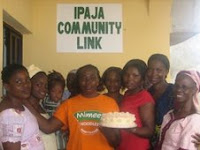For information about this new postgraduate Masters programme online go to - http://www.uel.ac.uk/education/programmes/postgraduate/youthcommunity-ma.htm.
In the video below, Mohamed Moustakim talks about this brand new post graduate programme.
This blog is for sharing information and resources about education and community development with students that are studying for degrees in Education and Community Development as single or combined honours at the University of East London. It aims to be an accessible space for stuff to support studying in this area and, building a satisfying and successful professional career based on it.
For information about this new postgraduate Masters programme online go to - http://www.uel.ac.uk/education/programmes/postgraduate/youthcommunity-ma.htm.
In the video below, Mohamed Moustakim talks about this brand new post graduate programme.
 Short notice but ... a great opportunity for those of you who have done the Gender Security module ED3022.
Short notice but ... a great opportunity for those of you who have done the Gender Security module ED3022.Qualifications:
To apply, submit a cover letter, resume and 2-3 references to madre@madre.org. Include “Women’s Human Rights Advocacy Fellow” in the subject line. The application deadline is August 31, 2009.
Information is at: http://madreblogs.typepad.com/mymadre/2009/08/apply-for-the-madre-womens-human-rights-advocacy-fellowship.html
 This is Rosemary Braithwaite and Nicole Blanc. Rosemary did her degree while she was working sharing generously from her experiences at work with fellow students and tutors. Nicole now has a job about which she has written 'I really feel that this job compliments my degree and a lot of the modules I did at UEL i.e. Social Policy, Diaspora Communities, Sociology of Childhood, Gender Security and Education for all and ultimately my dissertation: Transition to Early Years'.
This is Rosemary Braithwaite and Nicole Blanc. Rosemary did her degree while she was working sharing generously from her experiences at work with fellow students and tutors. Nicole now has a job about which she has written 'I really feel that this job compliments my degree and a lot of the modules I did at UEL i.e. Social Policy, Diaspora Communities, Sociology of Childhood, Gender Security and Education for all and ultimately my dissertation: Transition to Early Years'. Dr Lionel McCalman, module leader for some of Education and Community Development's core modules, always dresses up for the occasion!
Dr Lionel McCalman, module leader for some of Education and Community Development's core modules, always dresses up for the occasion!  It is important that you register for the modules you will take in the next academic year because otherwise there might not be enough places on the modules to accommodate everybody. If you are not able to do a core module, because there are not enough places, it may lead to your having to delay the progress of your studies and having to stay on another semester in order to complete your degree, possibly even paying more fees to complete your degree.
It is important that you register for the modules you will take in the next academic year because otherwise there might not be enough places on the modules to accommodate everybody. If you are not able to do a core module, because there are not enough places, it may lead to your having to delay the progress of your studies and having to stay on another semester in order to complete your degree, possibly even paying more fees to complete your degree.Although I have given the approximate times when the modules will be taught, these times may change because the timetable is still not fixed. I will keep you posted about any changes to the timetable here so that if any problems arise as a result of changes you can get in touch to change your module registration where necessary.
You can inform me of your module choices by email to a.m.ogunsola@uel.ac.uk and you can also email queries to the programme blog using the comment box below.


Skills acquisition at ICL
Although the Millennium Development Goals (MDG) have been dismissed by some as unachievable, and therefore of doubtful significance, the values and the focus of the MDG have mobilised people and resources for development.
In this seminar, Yomi Oloko and Jennifer Bryam will discuss how the Millennium Development Goals inspire and inform the work they do at the Ipaja Community Link (ICL), in Lagos State, Nigeria. Yomi is the project co-ordinator at ICL and Jennifer Bryam is a Voluntary Service Overseas (VSO) volunteer based at ICL.
Ipaja Community Link is supported by Development Impact for Nigeria (DIFN), a UK based Nigerian diaspora development agency (http://www.difn.org.uk/). It was volunteering with DIFN in London and visiting ICL when he could, that inspired Yomi to give up his job in London and go to Nigeria in order to lead the co-ordination of Ipaja Community Link. Volunteer Jennifer Bryam writes the ICL blog (http://ipajacommunitylink.blogspot.com/ ) documenting the activities of the workers, the community and the experience of volunteering in Nigeria.
Yomi and Jennifer's presentation will include a photo show as well as an introduction to a range of volunteering and placement opportunities in Nigeria for students, professionals and anybody looking for a rewarding experience volunteering in Africa.
